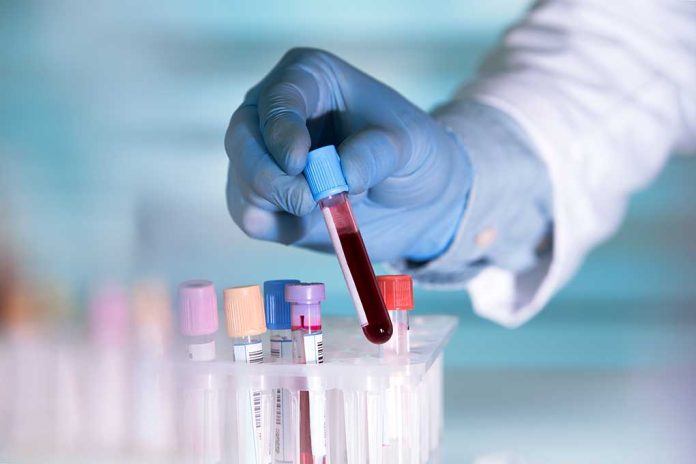
DARPA’s innovative “Red Blood Cell Factory” program aims to revolutionize soldier endurance and protection in harsh environments through groundbreaking modifications to red blood cells.
Top Takeaways
- DARPA’s RBC-Factory program seeks to enhance red blood cells with bioactive molecules for warfighter protection.
- Modified red blood cells could provide broad, durable, and reversible protection against extreme conditions and diseases.
- The program aims to develop a medical device prototype for efficient RBC modification within 21 months.
- Potential applications include extended medication delivery and improved defense against battlefield ailments.
- Ethical considerations and independent validation are integral parts of the program’s development.
Enhancing Soldier Resilience Through Blood Cell Modifications
The Defense Advanced Research Projects Agency (DARPA) has launched an ambitious program called “Red Blood Cell Factory” (RBC-Factory) to enhance the capabilities of American soldiers in extreme environments. This cutting-edge initiative focuses on modifying red blood cells to incorporate biologically active ingredients, potentially transforming them into long-lasting medication delivery systems and bolstering defense against various threats.
Dr. Christopher Bettinger, the program’s primary contact and a professor at Carnegie Mellon University, explains the necessity for such advancements: “The current state of the art to maintain and protect warfighters operating in extreme environments or facing potential threats requires administration of pre-exposure prophylaxes or post-exposure medical countermeasures.”
DARPA’s RBC-Factory program aims to create a platform to modify human red blood cells (RBC) to include additional biologically active components that protect warfighters and allow them to operate more effectively in extreme or threat environments.https://t.co/uygxF6aBGQ pic.twitter.com/8xFZS3FC7D
— USA Patriotism! (@USAPatriotismOg) January 5, 2025
Revolutionizing Soldier Protection and Performance
The RBC-Factory program targets a range of physiological stressors that soldiers face, including extreme temperatures, varying oxygen levels, pathogens, and diseases like malaria. By modifying red blood cells with natural or synthetic “cargoes” such as small molecules, peptides, proteins, and nanomaterials, DARPA aims to create a versatile platform for enhancing soldier performance.
“Modified red blood cells will allow recipients such as warfighters to operate more effectively in dangerous or extreme environments,” DARPA states, highlighting the potential impact of this technology on military operations.
Advancing Beyond Current Limitations
Current methods of protecting soldiers often come with significant drawbacks, including side effects, limited efficacy, and logistical challenges. The RBC-Factory program aims to overcome these limitations by providing broad, durable, and reversible protection without resorting to genetic modification. This approach could potentially reduce the need for extended medication periods and improve defense against battlefield ailments.
“Increased preparedness prior to deployment and enduring protection while in theater is needed for service members to operate effectively in extreme environments,” DARPA emphasizes, underscoring the program’s strategic importance.
Ethical Considerations and Future Applications
While the potential benefits of the RBC-Factory program are significant, DARPA insists it is mindful of the ethical implications. The agency has incorporated an ethical, legal, and societal implications (ELSI) plan to address issues of acceptance, adherence, and equity impacts. Additionally, independent verification and validation partners will be involved to ensure the program’s progress is rigorously assessed.
Beyond military applications, this research could have far-reaching implications for civilian healthcare. Bettinger notes, “The US military is exploring blood biohacks to boost warfighter performance in extreme conditions.” These advancements could potentially revolutionize treatments for infectious diseases and cancer, opening new avenues in biomedical engineering.
A Race for Biotechnological Superiority
As the United States pursues these advancements, it’s worth noting that other nations, particularly China, are also exploring military biotechnology, often with fewer ethical constraints. This global competition underscores the strategic importance of programs like RBC-Factory in maintaining technological edge in defense capabilities.
With its ambitious goals and potential for transformative impact, DARPA’s Red Blood Cell Factory program represents a significant step forward in military medical technology. By harnessing the power of modified red blood cells, this initiative could not only enhance soldier endurance and protection but also pave the way for groundbreaking advancements in civilian healthcare and bioengineering.






















